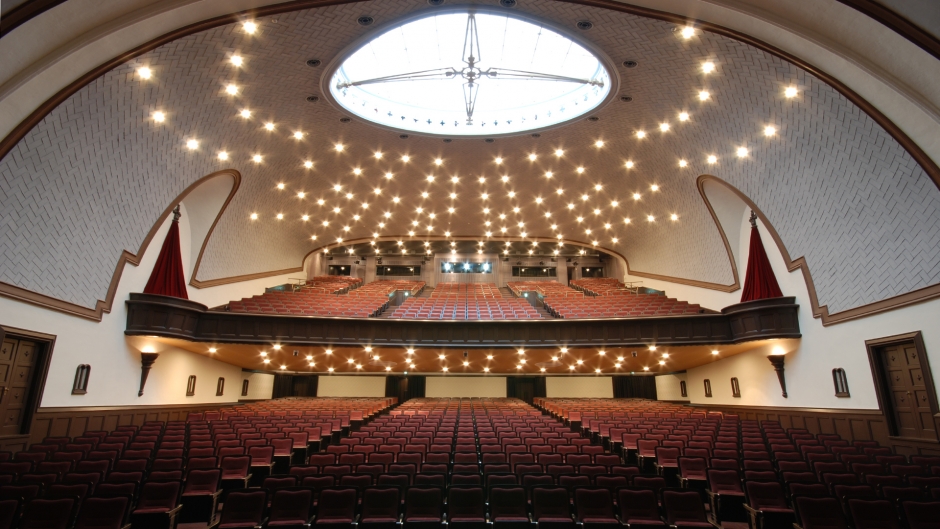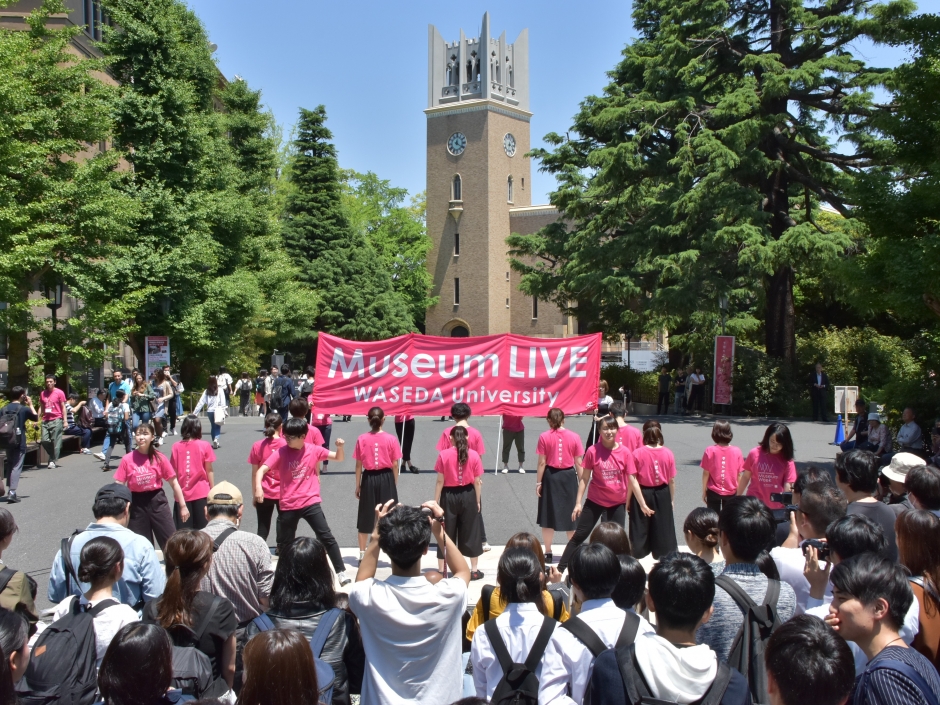Waseda University has more than 5 million items, including books, artworks, calligraphy, paintings, museum materials, video materials, and records, including two national treasures, seven important cultural properties, and eight important art objects, in its libraries, The Tsubouchi Memorial Theatre Museum, Aizu Museum, and Waseda University History Museum (Higashifushimi Archives). These are the accumulation of knowledge as the result of education and research over the 125 years since the university was founded, and are also valuable cultural assets that form the core of Waseda culture. Since its founding, the university's faculty, staff, and students have worked together to make these cultural assets widely available to citizens, local communities, and society. This is because we want to fulfill one of the university's missions, which is to contribute to the creation of a peaceful, culturally rich society through the public disclosure and utilization of the university's cultural resources. Cultural Affairs Division will play a central role in disseminating the culture of Waseda University, and will actively promote and support a variety of cultural activities while coordinating them and working with alumni, companies, local communities, and society at large and with cultural-related institutions on campus as its core in order to co-create and generate knowledge through collaboration with both inside and outside the university, including alumni, businesses, local communities, and society as a whole.

A full range of cultural facilities is essential for the development of cultural activities. Our university has two symbolic buildings, the Okuma Auditorium and the Ono Auditorium. Repairs to the Okuma Auditorium were completed in September 2007, and the building will be reborn as a multi-purpose cultural hall. The 125th Anniversary Room was also established as a facility for displaying the university's valuable cultural assets. Furthermore, the Waseda Gallery was established as a new base for communicating the history and future of Waseda University both inside and outside the university. The gallery is used as a place for students to present their graduation projects and for small planned exhibitions. Cultural Affairs Division manages the various facilities and equipment that support these diverse cultural activities, and actively disseminates information about these cultural activities and their results both inside and outside the university.

In addition to promoting cultural projects, Cultural Affairs Division is considering proactively concluding cultural exchange agreements with local governments and other organizations in the future. In cooperation with the local community and alumni, we aim to systematically and continuously develop diverse cultural exchanges, including personal exchanges outside of the university. If the local community and alumni can empathize with our university's high level of education and research, it will also be an opportunity for them to further deepen their understanding of our university. In order for the activities of Cultural Affairs Division to develop into solid, ongoing cultural exchange rather than temporary, we would like to take every opportunity to enrich the culture originating from our university that can contribute to the welfare of human society.

Museum Week
Our mission is to utilize the rich and diverse cultural resources that we have accumulated since our founding to develop new education for Waseda University in its second century, thereby contributing to the improvement of peace and welfare in human society and the further development of culture, and through these activities to support the development of talented people who will lead Japan into the future.
Cultural Planning Section, as the secretariat directly under Cultural Affairs Division, plans and draws up various policies to achieve the mission of Cultural Affairs Division. Specifically, it manages the Cultural Promotion Council, compiles the University's cultural promotion policies, plans cultural strategies based on them, and creates frameworks and systems for promoting culture. In addition, the department has three institutions with many cultural resources The Tsubouchi Memorial Theatre Museum, Aizu Museum, and the University Archives, and runs various cultural projects. With these three institutions at the core, it strengthens ties with each academic faculties, the administration, and related institutions both inside and outside the university, and systematically implements and coordinates each policy.
This division is responsible for Okuma Auditorium, Ono Auditorium, 125th Memorial Room, Waseda Gallery, etc., and encourages the use of these facilities both inside and outside the university, promoting and disseminating culture using the facilities. Various cultural activities are carried out at our university by students, faculty, staff, and alumni. It is also the role of Cultural Planning Section to actively promote these activities both inside and outside the university. We disseminate culture using various media, such as the Internet, such as the website, posters, flyers, and articles in the journal, for the cultural projects carried out by our university, mainly through the three institutions. In addition, based on the academic research book publishing system, we operate the Publication Planning Committee, and publish the Waseda University Academic Series and the Eupraxis Series through Waseda University Press Co., Ltd., disseminating research results both domestically and internationally, and improving the academic status of our university.
In supporting the development of human resources, we cooperate with awarding activities such as the operation of the Waseda University Tsubouchi Award, which recognizes people who should be guides in promoting culture in our country, the Azusa Festival in Sukumo City, Kochi Prefecture, the Wakayama Bokusui Youth Tanka Grand Prize in Nobeoka City, Miyazaki Prefecture, and the Waseda University President's Award at the Obunsha National Arts and Sciences Competition.We also cooperate with the government and local communities of Shinjuku Ward, Nakano Ward, Honjo City, and other areas to contribute to the promotion of local culture, such as by hosting an "Interesting Science Experiment Class" in collaboration with the Faculty of Science and Engineering and Kamogawa City, and by hosting student theater performances in Minokamo City, we are improving the cultural presence of our university and giving back to society.
It is no exaggeration to say that Cultural Planning Section plays the role of a promoter and facilitator of Waseda culture.
For reference: "Waseda University Centennial History" published by the Waseda University Archives (currently Waseda University History Museum)
The Waseda Culture Site is operated by Cultural Affairs Division as a base for disseminating the university's cultural resources and information.